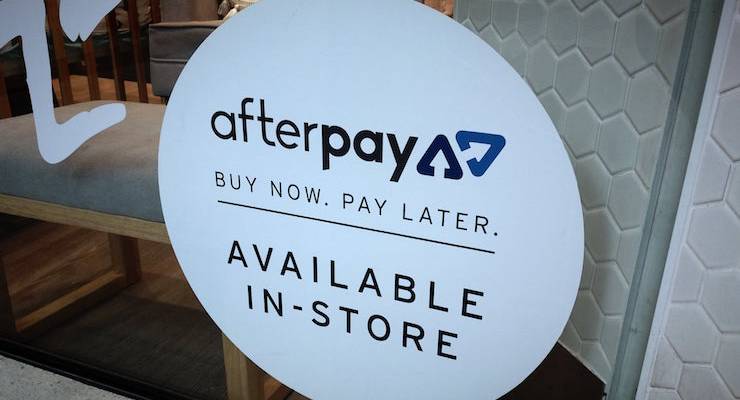
The soaring buy-now-pay-later firm Afterpay may be capitalised at almost $8 billion, but controversy continues to follow the company — and its Sydney PR firm Cato & Clegg.
Just a month after The Australian Financial Review’s Rear Window columnist Joe Aston revealed that PR heavyweight Brett Clegg was sitting on $770,000 in paper profits on some previously undisclosed Afterpay options, Clegg, a former senior publishing executive at both Fairfax and News Corp, has parted ways with his boss Sue Cato.
Rear Window revealed the news last night, with an official announcement expected shortly.
Expect a major rework of Cato & Clegg’s branding — The Australian even reported today it may be renamed Cato & Clive, as The Australian’s former editor Clive Mathieson (Malcolm Turnbull’s former chief of staff) steps up as the only other partner in the firm alongside Cato.
Clegg’s Afterpay profits were presumably a factor in the discussion around the terms of his exit and the sale of his minority equity stake in the firm, which won’t carry his name in 2020.
As Crikey pointed out last month, the optics of the Afterpay options play weren’t good, and there were also issues around who knew what and when.
And it raises the question: if PR operatives are being issued chunky amounts of employee options, who else is on this Afterpay options train?
For instance, PR operative and lobbyist David Gazard — a great mate of Scott Morrison — was reported on December 8 to be the proud owner of 60,000 Afterpay employee options at a strike price of $12.50. With the stock closing at $29.10 last night, these options are $996,000 in the money. Nice.
But these option plays in Australia are just the tip of the iceberg compared to what is happening across the Pacific where Afterpay has been separately issuing enormous amounts of options over its US business.
Whilst there’s no visibility as to who has received the US options, the scale of the overall scheme was finally disclosed to the ASX on Monday this week. It’s unlike anything tried on by an ASX-listed company before with a maximum 21.77 million ordinary shares to be issued, the vast majority of which would be profit.
We’re talking as much as $600 million in paper gains for the lucky US recipients because the average strike price for these options is low, averaging just US$1.81 a share in the latest round.
Meanwhile, back in Australia, Afterpay has finally launched its long promised share purchase plan (SPP) for its ordinary 40,000 retail shareholders.
This was delayed from June until after the AUSTRAC requested audit into Afterpay’s practices was completed in late November. Strangely, it was perfectly fine for Afterpay shares to keep trading during the AUSTRAC probe, but it was too dangerous for retail investors to apply for new shares.
SPPs are offered as a sop to retail investors after institutional placements to the big end of town. Afterpay raised $317 million through an institutional placement in June at $23 and then did another $200 million placement to US fund Coatue at $28.50 in November.
Unlike Clegg and Gazard, with their respective purchase prices of $12.98 and $12.50, the mums and dads will be paying $23 a pop in the Afterpay SPP, and if all eligible participants apply for the maximum $15,000 that will represent $600 million of new money.
However, the Afterpay board has repeatedly said it would be capping the SPP at just $30 million, meaning that applicants are likely to be heavily scaled back.
In these situations, boards have discretion to lift any arbitrary caps — which is precisely what Westpac did last week when it aimed to raise $500 million from retail investors but ended up accepting all $770 million worth of applications from its SPP.
Given the extraordinary generosity that Afterpay has shown issuing truckloads of discounted shares and options to various insiders and advisers, it would be remarkable if regular retail shareholders got scaled back in the SPP. We’ll know when it closes on January 17.
Stephen Mayne is a small Afterpay shareholder and may participate in the SPP.








Crikey is committed to hosting lively discussions. Help us keep the conversation useful, interesting and welcoming. We aim to publish comments quickly in the interest of promoting robust conversation, but we’re a small team and we deploy filters to protect against legal risk. Occasionally your comment may be held up while we review, but we’re working as fast as we can to keep the conversation rolling.
The Crikey comment section is members-only content. Please subscribe to leave a comment.
The Crikey comment section is members-only content. Please login to leave a comment.